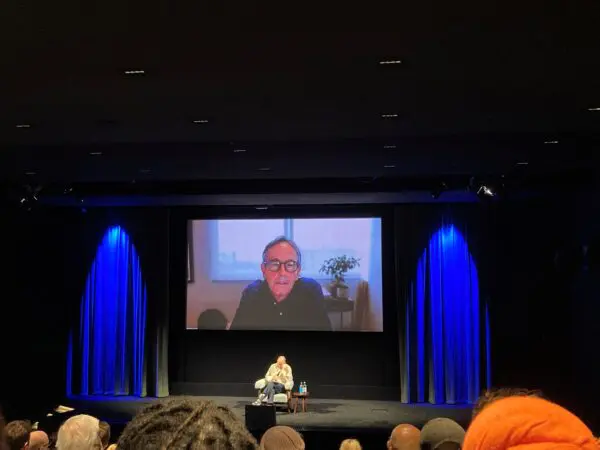BAFTA-winning screenwriter and Screenwriters’ Lecture series creator Jeremy Brock discusses the art of writing for an international audience.
Curating the BAFTA Screenwriters’ Lecture Series has involved corralling talent so diverse as to dispel all pre-conceptions regarding the provenance of a successful screenplay. I believe great screenwriting is a symbiosis of talent, graft and zeitgeist, irrespective of its linguistic or cultural roots. A second truth (not easily accepted by film director’s intent on protecting their authorial credit) is that great screenplays will always lie at the heart of great films. Which is why Ken Loach is unafraid to share top-billing with his gloriously talented screenwriter and co-collaborator, Paul Laverty (BSLS 2011).
One of the joys of hosting over thirty screenwriters’ lectures has been hearing voices as wildly different as Guillermo Arriaga, Julian Fellowes, Emma Thompson, Charlie Kaufman, Richard Curtis and Moira Buffini. Yet, in terms of theme and content, their disparate voices revolve around the universal challenge of all art: how to shed light on what it means to be human.
In this context, the growing internationalism of our lectures is entirely apposite, for regardless of background we are all somebody’s child, come from somewhere we call home and enter adulthood with only one body of experience to take on the journey. Counter-intuitively, screenwriting for an international audience means shedding any notion that our disparate cultures (language, politics, place) separate us. But, rather, that the detail of our differences…the particularity of familial and cultural heritage…is what amplifies the shared experience of being human. I passionately believe in the detail of storytelling. Without a forensic interrogation of character and situation, a film risks slipping into the generic and the clichéd. The key to all great films, international or otherwise, begins and ends with authenticity. It is a misconception, born from an obsession with cultural immediacy, to suppose that because a film is in a different language, it is, in some way alien from our experience of life and therefore less affecting, less “about us”. If a film is made by a great artist then, sub-titles or no sub-titles, it will move us. I did not sit through Son of Saul thinking “this is a foreign film”. I sat through Son of Saul feeling overwhelmed by its visceral brilliance, its fierce integrity. Never once did I think “these people are not speaking English”.









